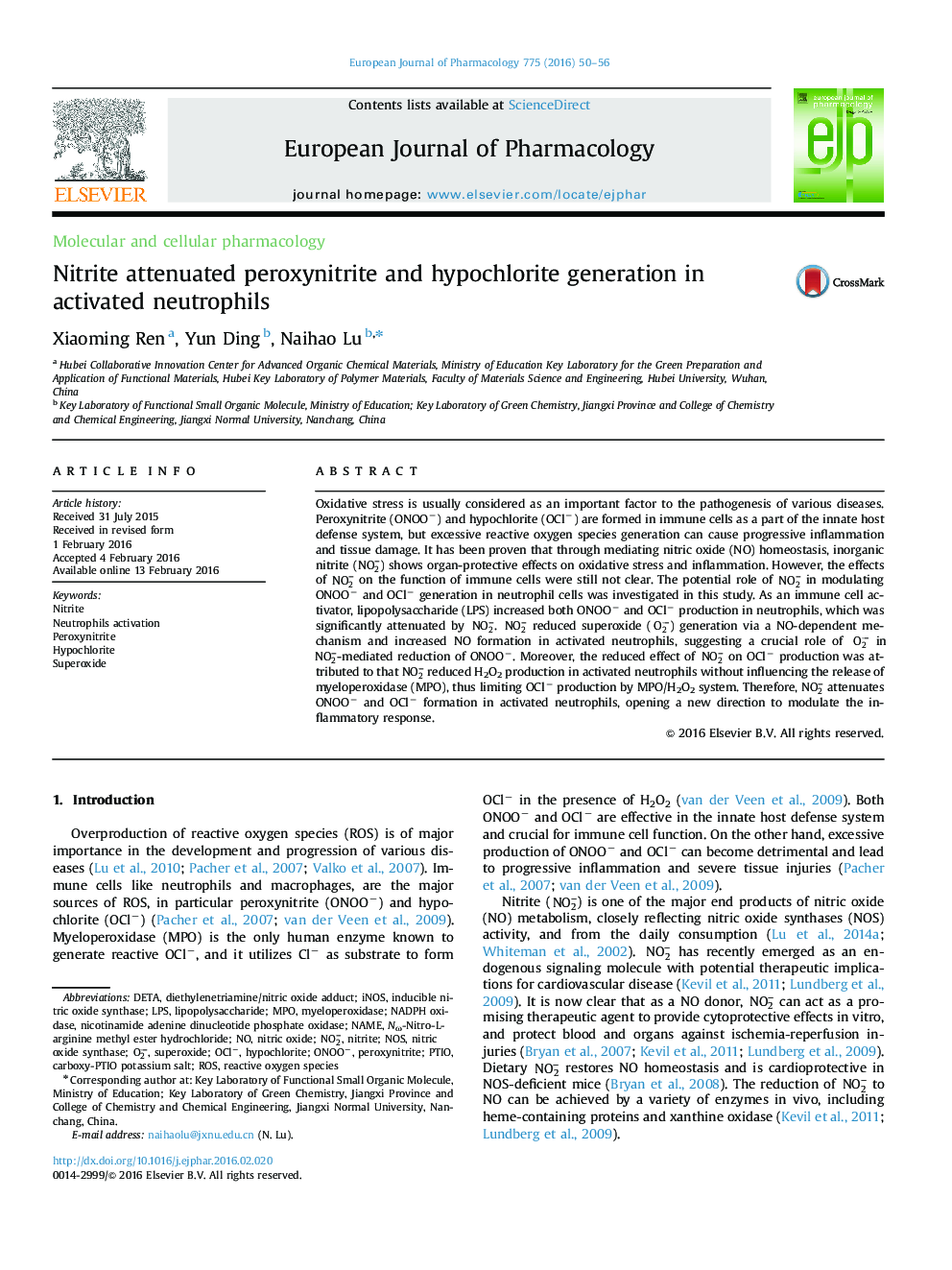| Article ID | Journal | Published Year | Pages | File Type |
|---|---|---|---|---|
| 2531148 | European Journal of Pharmacology | 2016 | 7 Pages |
Oxidative stress is usually considered as an important factor to the pathogenesis of various diseases. Peroxynitrite (ONOO−) and hypochlorite (OCl−) are formed in immune cells as a part of the innate host defense system, but excessive reactive oxygen species generation can cause progressive inflammation and tissue damage. It has been proven that through mediating nitric oxide (NO) homeostasis, inorganic nitrite (NO2-) shows organ-protective effects on oxidative stress and inflammation. However, the effects of NO2- on the function of immune cells were still not clear. The potential role of NO2- in modulating ONOO− and OCl− generation in neutrophil cells was investigated in this study. As an immune cell activator, lipopolysaccharide (LPS) increased both ONOO− and OCl− production in neutrophils, which was significantly attenuated by NO2-. NO2- reduced superoxide (O2·-) generation via a NO-dependent mechanism and increased NO formation in activated neutrophils, suggesting a crucial role of O2·- in NO2--mediated reduction of ONOO−. Moreover, the reduced effect of NO2- on OCl− production was attributed to that NO2- reduced H2O2 production in activated neutrophils without influencing the release of myeloperoxidase (MPO), thus limiting OCl− production by MPO/H2O2 system. Therefore, NO2- attenuates ONOO− and OCl− formation in activated neutrophils, opening a new direction to modulate the inflammatory response.
